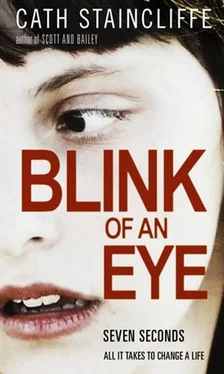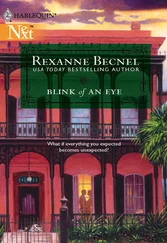Some events are overwhelming – we’re on call for major incidents as well, and I was there in the aftermath of the Manchester bomb. That’s with you for ever, too.
So, no foreigner to emergencies, the tears that appear without warning in the fabric of life, the cracks in the road, and the way we act to try and cope with sudden trauma. But it is a completely different thing to be on the receiving end. No doubt some of my experience and expertise kicked in, but I was powerless to act, powerless to influence. I had no role. Naomi’s health was in the hands of doctors and nurses. They were the experts. There was nothing for me to arrange or fix up, no calls to make, no referrals to agree upon. I was a bystander; I was ‘the family’.
That night I dreamt vividly. We were running, Phil and me and the kids. Naomi and Suzanne were still children. We were running and the wave of water was behind us, enormous, slate blue and foaming, howling at our heels. We had to reach higher ground; none of us could swim. I was yelling, screaming at the girls to run faster, tugging their hands. The wave rose above us, high as a house, a wall of water suspended for a moment before it came crashing down, wrenching our hands apart. I was tumbling over and over under the weight of it. When I surfaced, the water was littered with debris: metal and wood, tree branches. I couldn’t see the others. Phil called my name. He was up on the bank. On the turf, above the raw clay that had been eroded by the sea. The girls beside him. I waded to the edge, cold and breathless, hauled myself up and on to dry land. Suzanne, now an adult, stared at me, horrified. ‘Mum,’ she said, ‘where’s Ollie? You’ve left Ollie!’
And the fear flooded through me like acid.
Carmel
Thank God Phil was there, going through it all with me. I don’t know how I would have borne it without him. We’d been together thirty-one years by then. God – thirty-one years! Phil was playing support at the PSV Club in Hulme when I first saw him with his band, the Blaggards. They were punk pirates, all black leather and zips and red stripes. A skull and crossbones on the drum kit.
I was revising for finals at the time and trying to get my dissertation written: ‘Unmarried Mothers – Slatterns and Scapegoats’. Renting a room in a shared house in Fallowfield that was permanently damp and cold.
My housemates Karen and Gillian and I had hooked up with other friends and gone en masse to the gig.
The club was called the PSV because it was owned by a load of bus drivers and a PSV was the type of licence required to drive a bus. It was south of the city centre and meant we could walk home, unless someone felt flush enough to pay for a taxi. The door prices were reasonable, the toilets were a disgrace. Hold-your-breath-and-straddle-the-bowl kind of thing.
It wasn’t a massive club, small enough to spot people you knew in the crowd. The stage was raised; the dance floor was ringed with a scattering of tables and chairs at the fringes, some of them dropping to bits.
I remember dancing as soon as they started playing, pogo-ing up and down to keep warm more than anything. They were loud and strident; I couldn’t make out any of the lyrics that Ged, the front man, was snarling. I was single at the time. Gasping for breath in between numbers, I’d already scanned the crowd and worked out that the only good-looking blokes were already taken. So I turned my attention to the band. The bassist was a woman, Lorraine. Ged didn’t do anything for me. The drummer was a possible: nice face, but the Mohican hair dyed lurid orange and spikes pushed through his ears suggested he might be too outgoing for me. I wasn’t after a clown. Phil I thought was shy; he spent most of the set looking down, not connecting with the audience. He was skinny, bony, his shoulders sharply defined under a torn black T-shirt, tight black pants with zips, black Doc Marten boots on his feet. He had been at the hair gel, or sugar and water or beer or something, to stiffen his choppy black hair into a spiky fringe.
I watched him play, moved to the left through the crowd so he might notice me when he looked up. But he never did. He didn’t seem interested. Maybe he was gay? I went home unattached and drunk.
It must have been a month or so later, at another club-cum-boozer called the Cyprus Tavern, on Princess Street, not far from the BBC buildings, when I saw him again, drinking with Ged and a couple of other lads. The shyness was gone. We must have spent an hour doing the glance dance, matching gazes then looking away, over and away.
‘Go and ask him out,’ Karen told me. ‘Put him out of his misery.’
‘No!’ I objected. If I was going to risk making a fool of myself, risk rejection, I wasn’t going to do it in front of an audience.
Time went on, Karen started talking about going for the bus, but I didn’t want to leave while he was still there. While there was still a chance.
Then his group got up, all of them, and pulled on jackets and coats. His was an ancient black leather bomber jacket. I swore, lit a cigarette, nervous, knowing they would pass us on their way to the door.
He was last in line. Karen nudged me with her knee as they got closer. I nudged her back, hissed, ‘Leave it!’
I decided to play it cool, pretend indifference in some last-ditch attempt at flirting. But I could sense him getting closer with every hair on my body, with each beat of my pulse. As he reached our table, I swung my eyes up, took a drag of my cigarette. Aiming no doubt for some vamp-like appeal. I was wearing a tight-fitting green leopard-print dress, black tights, black Docs, half a wand of mascara, a slash of red lipstick, most of which was now on my fag end. My hair was dyed black with fuchsia-pink tips. All topped off with an acid-green beret. I thought I was drop-dead gorgeous.
He had blue eyes, dark blue with a black rim. Merriment in them as he slid on to the stool opposite us. ‘Got a spare smoke?’ His romantic first words. I pushed the packet over.
‘Thank you.’ He smiled. I laughed. He made me laugh. This popping feeling inside, mirth, excitement. He wasn’t shy at all. I found out later that the reason he appeared like that at the gig was because he was only just learning the chords, was petrified of playing a bum note. Though whether anyone could have told the difference…
‘I’m Phil,’ he said as he lit a cigarette. He had a Zippo.
‘Carmel, and this is Karen.’
‘Want to go on somewhere?’ He addressed us both.
My throat grew tight. Karen winked at me. ‘Thing is, Karen needs to get the bus. Said I’d walk her.’
‘I’ll come too,’ he suggested.
We ambled along Princess Street and through to Oxford Road, talking about his band and seeing them at the PSV and where they were playing next. I was coherent and outwardly calm, but inside there was a little kid, arms raised in triumph, jumping up and down on a bed yelling, I got him! I got him! I got him!
We didn’t touch.
We saw Karen on to the bus. Phil had already suggested we get a late drink, and we walked down to Rusholme, to a little place hidden away off Moss Lane East. A shebeen, I guess. People knew him, let us in. It was smoky, crowded; most of them were West Indian, just a sprinkling of white faces. He nodded greetings and we squeezed through the couples who were dancing up close to rocksteady songs. There were huge towers of speakers with the bass set high, thudding through the floor; the dancers pulsed almost as if the beat itself was physically shifting them.
Phil led me to a table where shots of rum and cans of Red Stripe lager were all that was on offer. I had no money left but he had enough for a lager, which we shared, taking turns sipping from the can.
Читать дальше












